
Custom Metrics Techniques: A Tailored Approach to Data Analysis for Growth and Innovation
Custom metrics techniques empower businesses to transform raw data into actionable insights, driving growth through optimized performance and data-driven decision-making. This in-depth article reveals how to create, visualize, and analyze custom metrics aligned with your business goals. Drive innovation, optimize performance, and make data-driven decisions that propel you toward growth!
Extracting actionable insights from information is crucial for business success. While valuable, standard metrics often lack the specificity to fully understand unique operational nuances. This is where Custom Metrics emerge as a powerful tool.
Custom Metrics transcend the limitations of one-size-fits-all approaches by allowing businesses to define, track, and analyze data points directly tied to their specific goals and objectives. This granular level of detail provides unparalleled accuracy. It empowers organizations to make strategic decisions based on the most relevant and dynamic information.
By moving beyond generic, pre-defined parameters, Custom Metrics offer several advantages:
- Enhanced Focus:
- Improved Decision-Making:
- Unlocking Innovation:
They enable a laser focus on the metrics that truly matter to your organization, driving a deeper understanding of your competitive landscape and internal operations.
Data becomes a strategic asset, confidently informing and guiding critical choices.
Custom Metrics can reveal hidden trends and patterns, fostering a data-driven culture of innovation and continuous improvement.
Key Takeaways
- DiGGrowth seamlessly integrates data from various platforms, providing a unified view of marketing activities.
- Automation significantly reduces the time required to generate actionable insights.
- Granular tracking of every touchpoint ensures a comprehensive view of the customer journey.
- DiGGrowth’s approach ensures high data quality and consistency, crucial for accurate analysis.
- Optimizing campaigns with comprehensive insights leads to a significant increase in ROI.
The Foundation of Metric-Driven Strategy
At the heart of any effective metric-driven strategy lies a strong foundation grounded in the business’s core goals and objectives. By ensuring that custom metrics align with the company’s vision, organizations can steer their efforts towards meaningful outcomes and away from vanity metrics that don’t contribute to real-world success.
Business Goals and Objectives: Aligning Metrics with Vision
Companies must first articulate their business goals and objectives to navigate the complexities of metric alignment. This acts as a compass for developing custom metrics, ensuring each metric contributes to the bigger picture. By doing so, organizations can eliminate extraneous data and focus on information that drives strategic decision-making.
DiGGrowth streamlines data collection from various marketing channels and platforms, allowing businesses to focus on the information that truly matters. This includes centralizing data for campaign tracking, analyzing customer journeys, and measuring marketing ROI. DiGGrowth empowers organizations to develop custom metrics directly tied to their strategic objectives by clearly showing marketing effectiveness.
Here’s how DiGGrowth can support the creation of a metric-driven strategy:
- Data Consolidation:
- Actionable Insights:
- Focus on ROI:
Eliminates extraneous data by consolidating information from various marketing sources.
Distills complex data into insights that drive strategic decision-making.
Enables the creation of custom metrics directly tied to marketing goals and objectives.
Pro Tip- laying a robust foundation for a metric-driven strategy demands a deep understanding of business goals, precise selection of KPIs, and the crafting of custom-made calculation formulas. This trifecta is pivotal in painting a lucid picture of performance and shaping informed strategic decisions.
Custom Metric Design: Crafting Your Measurement for Impact
Developing custom metrics is a multi-dimensional process, pivotal to transforming raw data into strategic insights. With the dimension defined, the next crucial step is choosing the data points that will form the foundation of your custom metric. These points should be:
- Relevant:
- Accessible:
- Representative:
Aligned with the specific dimension you’re measuring.
Easily retrievable from your data sources.
Accurately reflect the performance you’re trying to assess.
By prioritizing these criteria, you ensure your custom metrics are grounded in reality and provide a true picture of performance.
How to Create Custom Metrics in Google Analytics 4 (GA4)
Accessing Custom Definitions:
- Log in to your GA4 property.
- Navigate to the Admin section (gear icon in the bottom left corner).
- Under the Property column, click on Custom definitions.
- Click on Create custom metric.
- In the Metric Name field, enter a clear and descriptive name for your metric. Use underscores or spaces instead of hyphens. (e.g., “Video_Completions” or “Product_Engagement_Time”)
- Optionally, provide a brief Description to further clarify the metric’s purpose.
- Select Event as the Scope. Custom metrics in GA4 are currently limited to events.
- In the Event parameter field, enter the exact name of the event parameter that will provide the data for your custom metric. You can find this parameter name within your website or app code where the event is tracked.
- Choose the most appropriate Unit of measurement for your custom metric. This could be standard units like currency or a custom unit (e.g., seconds for video engagement time).
- Click Save to create your custom metric.
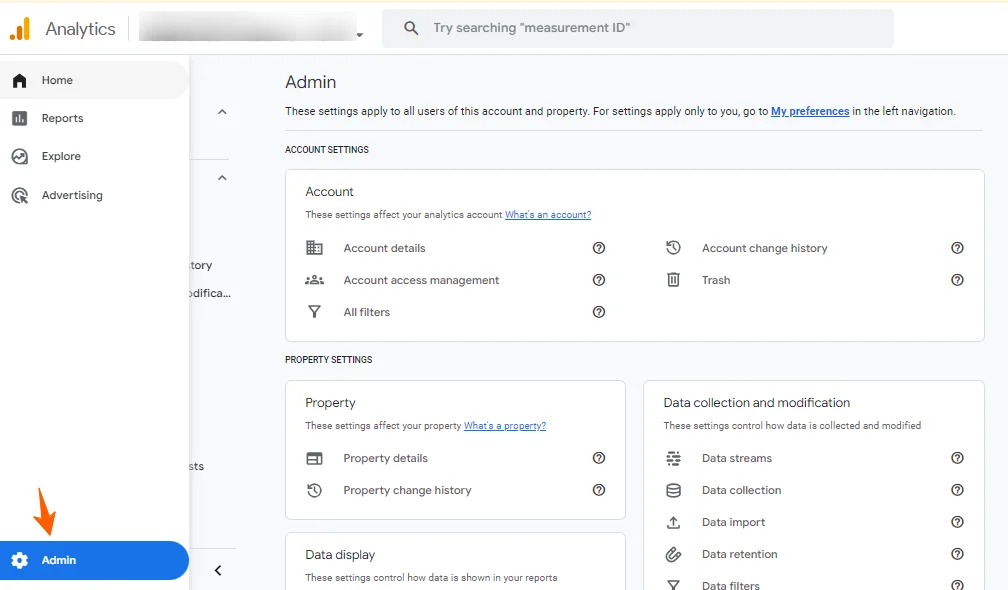
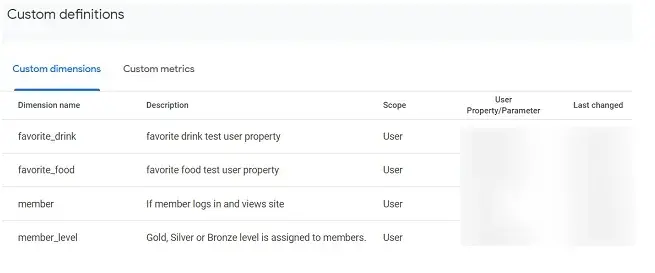

Specifying the Data Source:
Setting the Unit of Measurement:
Saving and Utilizing Your Custom Metric:
Pro Tip- Before creating a custom metric, ensure your website or app is properly configured to track the relevant event and parameter.
Technological Tools for Custom Metrics
Implementing custom metrics is a multi-faceted process that relies heavily on technological innovation. The right tools to track custom metrics are essential for achieving strategic goals and driving growth. These tools offer comprehensive solutions for collecting, analyzing, and visualizing data, ensuring businesses can make informed decisions based on accurate and relevant insights.
- DiGGrowth:
- Google Analytics:
- Salesforce:
- HubSpot:
- Tableau:
- Microsoft Power BI:
DiGGrowth is a robust tool for integrating and analyzing sales and marketing data. It consolidates information from various sources, such as ad platforms, CRM systems, website analytics, and marketing attribution platforms. By automating data extraction and ensuring data integrity, DiGGrowth provides businesses with actionable insights crucial for optimizing marketing campaigns and enhancing ROI. Its ability to track every customer touchpoint and connect leads to accounts ensures that all relevant data is captured and utilized effectively.

A widely-used tool that offers deep insights into website traffic and user behavior. It helps businesses understand how users interact with their website, which pages are most popular, and where traffic comes from. Custom metrics can be set up to track specific user actions, providing valuable data for improving website performance and user experience.
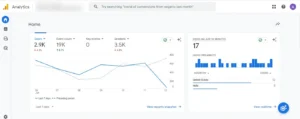
Known for its powerful CRM capabilities, Salesforce allows businesses to track customer interactions and sales data comprehensively. With its customizable dashboards and reports, companies can create custom metrics that align with their sales processes and business objectives. Salesforce’s integration capabilities also ensure that data from various sources is unified and accessible.

HubSpot provides marketing, sales, and service tools that help businesses track custom metrics across the customer journey. From email marketing performance to lead nurturing and sales activities, HubSpot’s comprehensive reporting features enable businesses to measure the effectiveness of their strategies and make data-driven decisions.
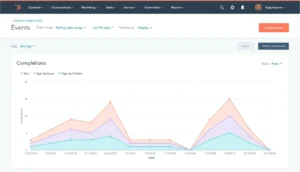
A leading data visualization tool, Tableau transforms raw data into interactive and shareable dashboards. It allows businesses to visualize custom metrics in a way that is easy to understand and analyze. Tableau integrates with various data sources, making it a versatile tool for tracking and analyzing custom metrics.

This powerful analytics tool enables businesses to create detailed reports and dashboards that track custom metrics across various departments. Power BI’s robust data integration capabilities and user-friendly interface make it.

| Tool | Key Features | Use Case | Benefits |
|---|---|---|---|
| DiGGrowth | Data integration, attribution, lead to account matching, comprehensive touchpoint tracking | Integrating and analyzing sales and marketing data | Reduces data preparation time, ensures data quality and integrity, provides actionable insights |
| Google Analytics | Website traffic analysis, user behavior tracking, custom metrics | Understanding website performance and user interactions | Deep insights into website traffic, help improve user experience and site performance |
| Salesforce | CRM capabilities, customizable dashboards, sales data tracking | Tracking customer interactions and sales processes | Comprehensive view of customer data, unifies data from various sources, customizable metrics |
| HubSpot | Marketing, sales, and service tools, reporting features | Tracking marketing performance and customer journey | Measures effectiveness of marketing strategies, facilitates data-driven decisions |
| Tableau | Data visualization, interactive dashboards, wide range of data source integration | Visualizing and analyzing custom metrics | Transforms raw data into understandable visuals, versatile integration with data sources |
| Microsoft Power BI | Detailed reporting, data integration, user-friendly interface | Creating detailed reports and dashboards for various departments | Robust analytics, easy-to-use interface, drives strategic decisions |
Mastering Visualization and Interpretation of Custom Metrics
When it comes to custom metrics, the finesse with which they are visualized and interpreted can make all the difference. Clear, insightful communication is the pinnacle of data storytelling; it transforms complex data sets into actionable information. Let’s delve into effective strategies for turning your custom metrics into compelling visual narratives that drive strategic decisions.
- Choosing the Right Chart Types:
- Strategic Color Schemes:
- Interactive Dashboards:
- Regular Data Audits:
- User-Friendly Reports:
- Real-Time Analytics:
Select chart types that best represent your data’s significance, whether bar graphs for comparisons, line charts for trends, pie charts for proportions, or heat maps for density and intensity.
Use color schemes to highlight trends, contrasts, and patterns within your metrics, making it easier to spot significant data points.
Develop interactive dashboards that allow stakeholders to filter and drill down into the data. This enables a deeper understanding of the specifics and supports more informed decision-making.
Conduct periodic reviews and validations of your data to ensure its accuracy and relevance. This practice helps maintain the integrity of your metrics and the decisions based on them.
Design reports that are easy to interpret for all stakeholders. Simplified and clear reports ensure everyone can understand and act upon the key insights.
Implement tools that provide real-time data updates. This allows for timely decision-making and swift responses to emerging trends or issues.
Custom Metrics in Practice
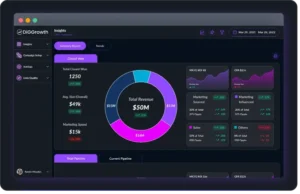
Implementing custom metrics effectively can transform raw data into powerful insights that drive strategic decisions. Here are key practices for utilizing custom metrics, with a focus on how DiGGrowth can enhance these efforts:
- Align Metrics with Business Goals:
- Leverage DiGGrowth for Comprehensive Data Integration:
- Generate Actionable Insights:
- Track Granular Data:
- Maintain Data Quality and Consistency:
- Set Custom Alerts and Access Real-Time Data:
- Create Interactive Dashboards:
- Commit to Continuous Improvement:
Ensure every custom metric directly supports your business objectives. This alignment helps focus efforts on meaningful outcomes, eliminating extraneous data that doesn’t contribute to your goals.
DiGGrowth consolidates data from various platforms, such as ad networks, CRM systems, and marketing attribution tools. This seamless integration ensures all relevant data points are captured, providing a comprehensive view of performance metrics.
Focus on metrics that offer actionable insights rather than vanity metrics. DiGGrowth’s automation and detailed tracking capabilities allow you to extract meaningful data that can be used to optimize campaigns and improve ROI.
Monitor metrics at a granular level to understand the complete customer journey. DiGGrowth enables you to track every touchpoint, from initial website visits to final sales interactions, ensuring no critical data is overlooked.
Ensure high data quality and consistency standards. DiGGrowth’s “extract, load, and transform” approach keeps your data accurate and reliable, essential for making sound business decisions.
Configure custom alerts for key metrics to receive immediate notifications of significant changes or anomalies. DiGGrowth provides real-time data, allowing for prompt responses to emerging trends and issues.
Develop interactive dashboards that enable stakeholders to drill down into the specifics of your data. DiGGrowth offers robust visualization tools that simplify exploring detailed metrics and help you gain deeper insights.
Regularly review and refine your custom metrics to ensure they remain aligned with your evolving business goals. DiGGrowth’s comprehensive reporting features facilitate ongoing assessment and adjustment of your metrics.
Pro Tip – Regularly involve your team in reviewing custom metrics and insights. Their diverse perspectives can uncover new opportunities and ensure your metrics align with your business goals.
Case Study: How DiGGrowth Transformed Marketing Efficiency for a Renowned E-commerce Company
Background
A renowned e-commerce company faced significant challenges consolidating and analyzing data from various marketing channels. The marketing team struggled with fragmented data, slow reporting processes, and difficulty tracking the customer journey. These issues led to inefficiencies and missed opportunities in optimizing marketing campaigns and improving ROI.
Challenges
- Data Fragmentation:
- Time-Consuming Reporting:
- Incomplete Customer Journey Tracking:
- Data Quality Issues:
The company used multiple platforms for advertising, CRM, and web analytics, resulting in siloed data that was difficult to integrate and analyze.
Manual data extraction and reporting processes were slow, delaying insights and decision-making.
The marketing team lacked visibility into the entire customer journey, from initial engagement to final purchase.
Inconsistent data quality and integrity across platforms hindered accurate analysis and reporting.
Solution
The company adopted DiGGrowth to address these challenges and enhance their marketing efficiency.
- Comprehensive Data Integration:
- Automated Reporting:
- Complete Customer Journey Tracking:
- Enhanced Data Quality:
DiGGrowth seamlessly integrated data from various ad platforms, CRM systems, and marketing attribution tools, providing a unified view of all marketing activities.
DiGGrowth significantly reduced the time required to generate actionable insights by automating data extraction and reporting.
DiGGrowth enabled granular tracking of every customer touchpoint, from initial website visits to sales interactions, offering a comprehensive view of the customer journey.
DiGGrowth’s “extract, load, and transform” approach ensured high data quality and consistency, crucial for accurate analysis and strategic decisions.
Implementation
- Platform Integration:
- Data Consolidation:
- Dashboard Creation:
- Training and Support:
DiGGrowth’s plug-and-play connectors integrated the company’s ad platforms, CRM, and web analytics tools.
DiGGrowth consolidated data from these sources, creating a unified data repository.
Custom interactive dashboards were developed to visualize key metrics and allow stakeholders to drill down into the data.
The marketing team received training on using DiGGrowth’s features effectively, supported by ongoing customer support.
Results
- Improved Marketing Efficiency:
- Increased ROI:
- Enhanced Decision-Making:
- Better Data Quality:
DiGGrowth reduced the time spent on data preparation and reporting by 50%, allowing the marketing team to focus on strategic activities.
With comprehensive insights and the ability to track the complete customer journey, the company optimized its marketing campaigns, resulting in a 30% increase in ROI.
Real-time data and automated alerts enabled quick responses to emerging trends and issues, improving overall decision-making.
The consistency and integrity of the data improved, leading to more accurate and reliable analysis.
Conclusion
By implementing DiGGrowth, the e-commerce company overcame data fragmentation challenges and significantly improved its marketing efficiency. The ability to integrate, consolidate, and analyze data from multiple sources provided actionable insights that drove better strategic decisions and increased ROI.
Conclusion
Custom metrics stand at the forefront of a data-driven approach that fosters continuous growth and improvement. By integrating the techniques discussed, businesses can unlock deep insights directly related to their objectives and strategies. With the right tools and a commitment to data analysis, your organization can ensure actionable data back every decision.
For Example:
We encourage you to adopt these custom metrics techniques to enhance your business performance and achieve your strategic goals.
For more information, contact us at info@diggrowth.com and we’ll get back to you.
Ready to get started?
Increase your marketing ROI by 30% with custom dashboards & reports that present a clear picture of marketing effectiveness
Start Free Trial
Experience Premium Marketing Analytics At Budget-Friendly Pricing.

Learn how you can accurately measure return on marketing investment.
How Predictive AI Will Transform Paid Media Strategy in 2026
Paid media isn’t a channel game anymore, it’s...
Read full post postDon’t Let AI Break Your Brand: What Every CMO Should Know
AI isn’t just another marketing tool. It’s changing...
Read full post postFrom Demos to Deployment: Why MCP Is the Foundation of Agentic AI
A quiet revolution is unfolding in AI. And...
Read full post postFAQ's
Custom metrics are specific measurements tailored to align with a company’s unique business goals and objectives. They are important because they provide relevant insights that help make informed decisions, optimize performance, and drive growth.
To ensure effectiveness, align your custom metrics with your business goals, maintain high data quality, use appropriate visualization tools, and regularly review and adjust your metrics to reflect any changes in business strategy.
Tools like DiGGrowth can help by integrating data from various platforms, automating data extraction, and providing comprehensive dashboards for better visualization and analysis of your custom metrics.
Custom metrics are specifically designed to reflect the unique aspects of your business and its goals. In contrast, standard metrics are generic measurements that may not fully capture the nuances of your company’s performance.
Key challenges include: Data fragmentation. Ensuring data quality and consistency. Integrating data from multiple sources. Maintaining up-to-date and relevant metrics that align with evolving business goals.


